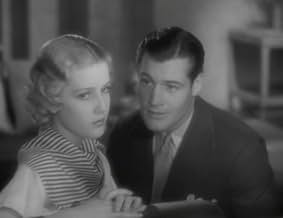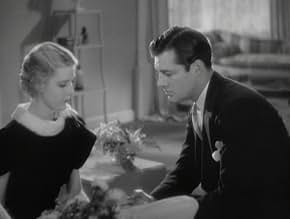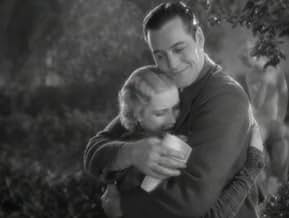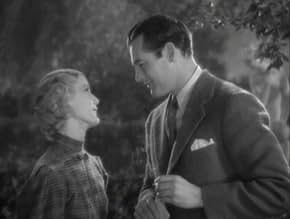Füge eine Handlung in deiner Sprache hinzuAn American heiress marries a lord, and shocks London society.An American heiress marries a lord, and shocks London society.An American heiress marries a lord, and shocks London society.
Violet Kemble Cooper
- Duchess
- (as Violet Kemble-Cooper)
Virginia Howell
- Mrs. Saunders
- (Gelöschte Szenen)
Walter Walker
- Mr. Saunders
- (Gelöschte Szenen)
Finis Barton
- Diana - George's Mistress
- (Nicht genannt)
Bunny Beatty
- Lady Helen
- (Nicht genannt)
May Beatty
- Duchess of Hightower
- (Nicht genannt)
Tyrell Davis
- Ernest
- (Nicht genannt)
Bradley Metcalfe
- Little Boy
- (Nicht genannt)
Handlung
WUSSTEST DU SCHON:
- WissenswertesElsa Maxwell was brought in as technical advisor for this film because of her vast experience in hosting events for royalty and high society. She also assisted Hattie Carnegie in the designs for the evening gowns worn by the principle actresses.
- PatzerAlthough Bessie is supposed to be from New York, Anita Louise plays her with an affected British accent.
- Zitate
[last lines]
Minnie, Duchess of Sourae: You know, you're very naughty sometimes, Pearl, but you have a good heart and I can't help being fond of you.
Lady Pearl Saunders Grayston: Minnie!
Minnie, Duchess of Sourae: Pearl!
[they embrace]
Ernest: Ah! What an exquisite spectacle! Two ladies of title, kissing one another!
- VerbindungenFeatured in Gefangen in der Traumfabrik (1995)
- SoundtracksThe Wedding March
(1843) (uncredited)
from "A Midsummer Night's Dream, Op.61"
Written by Felix Mendelssohn
Played by an offscreen organ during the wedding
Ausgewählte Rezension
This movie haunts me in a way and fills me with questions. Why did Selznick make this screen version of a 1917 Maugham play right in the middle of the Great Depression in America? I wonder what was on his mind -- to make people angry enough to bring their friends for another look? To let them scoff at the foibles of the impossibly idle rich? This movie primarily is about American expats who've found a place among a jaded British aristocracy (which, at the time of Maugham's stage play, were, with the rest of England, at the height of a bloody world war that would cost Britain almost an entire generation of its young men). But this film version was brought to the screen in 1933, at the height of a crushing Depression that left so many millions jobless and homeless and lucky to have the price of a night at the movies. Contrast that with the sly comic turnings of a very young Gilbert Roland as the Chilean idler Pepi, whose pouty side-glances as he manipulates his very rich and titled benefactress were elegantly applied and flawlessly aimed, no doubt, at enraging most any Depression-oppressed American of the day. I'm sure Roland (no idler himself) and Cukor had a lot of fun filming Pepi. I loved the steady Grant Mitchell, elegantly playing a happy snob who unashamedly admits that he'd come to England from Ohio, and has "lost any trace of an American accent." No apologies from his character, who lends the picture a decorum and good-humored tolerance, all in the cause of maintaining these high-blown dodgy "friendships," deftly working to keep things on a happy note, despite bothersome indiscretions. Others have written here of the remarkable performance of Violet Kemble Cooper as the Duchess, and I heartily agree. And what a happy surprise was the very late entrance in the picture of Tyrell Davis (one of the famous tailors from Wellman's "The Public Enemy" two years earlier) as the unabashedly delightful pouffe Ernest, brought in by Bennett's character to salvage a nearly wrecked country weekend. Ernest was summoned hastily from a busy Sunday schedule in London, still attired in his city-best, flawlessly coiffed, with dark heart-shaped lip rouge, more eye shadow than Bennett, and powdered like a pastry. He carried his look as proudly, happily and effortlessly as did the elegant Bennett in her timelessly smashing Hattie Carnegie gowns. Across the Channel, he'd have been exterminated by the Nazis, but in his place among a protective British aristocracy, Ernest was obviously a most happy man, allowed to act out himself completely and taking his place as a favorite among the ladies. I'm astonished that Davis, whose Ernest hilariously capped the picture and who uttered its naughty closing line, was not credited for this fresh and pleasing (or shocking) performance. Have you ever seen such a face in the movies? Or anywhere else? Such a happy individualist in a society that outlawed some of his assumed after-hours behavior. Without the protection of the aristocracy, Ernest, like Wilde, likely would have spent part of his life in prison. This picture contains some dated stage business and moves a bit too slowly for us today, but I'm so happy that it survives. I still wonder, though, what was the aim of making this movie at this time in the American experience? Hughes and Selznick wanted and expected an audience and a profit, after all. Was a Maugham play burning a hole in their pockets? Were generous eyes-full of Constance Bennett in clingy satin gowns enough to draw 'em in? I suspect there was a social aim here, but I'm not sure what it is.
Top-Auswahl
Melde dich zum Bewerten an und greife auf die Watchlist für personalisierte Empfehlungen zu.
Details
- Erscheinungsdatum
- Herkunftsland
- Sprache
- Auch bekannt als
- W. Somerset Maugham's Our Betters
- Drehorte
- Produktionsfirma
- Weitere beteiligte Unternehmen bei IMDbPro anzeigen
- Laufzeit1 Stunde 23 Minuten
- Farbe
- Seitenverhältnis
- 1.37 : 1
Zu dieser Seite beitragen
Bearbeitung vorschlagen oder fehlenden Inhalt hinzufügen
























